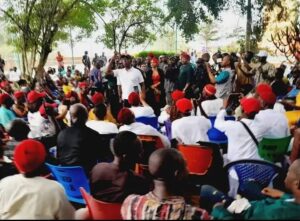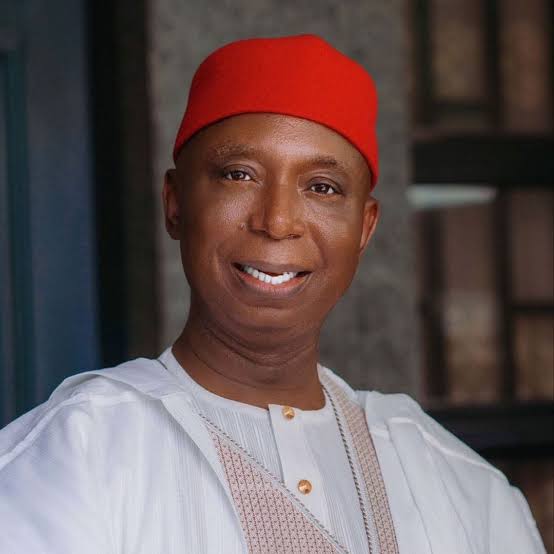Senator Prince Ned Nwoko of Delta North Senatorial District has officially announced his defection from the Peoples Democratic Party (PDP) to the All Progressives Congress (APC). Declaring his move with the statement, “I am going to join the President; I will move to APC,” Nwoko broke the news during a political meeting with supporters in his hometown.
This significant shift positions Delta State with three APC senators for the first time in history, signaling a seismic realignment in the state’s political landscape. Known for his philanthropy, legal expertise, and influence in Delta politics, Nwoko’s defection marks a turning point for the state, traditionally a PDP stronghold.

Social media platforms had been buzzing with hints and confirmations of Nwoko’s decision, with analysts speculating that the move is part of a larger strategy to align with the ruling party at the federal level. This alignment is expected to bolster his political clout and potentially revive his aspirations, including his previous campaign for the creation of Anioma State.
Read Also: Ughelli LG boss allegedly behind sand price hike
The defection underscores the shifting dynamics in Delta State politics, where ethnic, regional, and personal loyalties have long defined the political terrain. Historically dominated by the PDP, the state has witnessed a gradual pivot towards the APC in recent times. Last month, Hon. Erthiatake Ibori-Suenu, member representing Ethiope Federal Constituency and daughter of former governor James Ibori also defected from the PDP to APC. Nwoko’s move reflects these evolving trends, potentially heralding a new era of politics, governance and federal alignment for Delta.
Reactions to the announcement have been mixed. Supporters view it as a strategic alignment to channel federal resources for Delta’s development, while critics warn of the risks of one-party dominance, reminiscent of the APC’s control in states like Lagos. Political analysts also see this as an indicator of the PDP’s waning influence in the region, raising questions about the party’s future in Delta.
This development comes at a critical time as Nigeria prepares for 2027 general elections and time when key legislative decisions are being made. Nwoko’s defection strengthens the APC’s presence in Delta and enhances its influence in the Senate, where party allegiance can significantly impact national policymaking.
Beyond immediate party politics, the defection holds broader implications for Delta State. With three APC senators now representing the state, Delta gains a stronger voice in federal policy discussions, potentially unlocking new opportunities for infrastructure projects and economic development. This shift could also inspire further political realignments, as other PDP members weigh their options in an evolving political environment.
As Delta State embarks on this new chapter, the long-term impact of Nwoko’s decision will be closely watched. His declaration, “I am going to join the President,” not only highlights his personal commitment but also sets the tone for a high-level politicking both in Delta and Nigeria.






